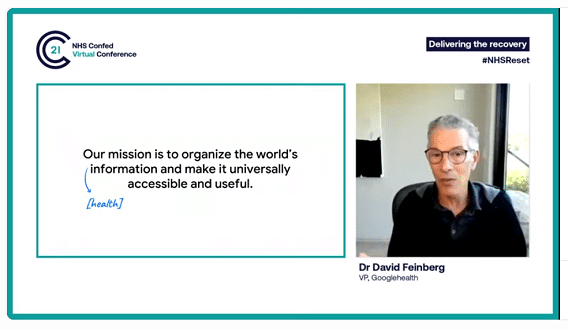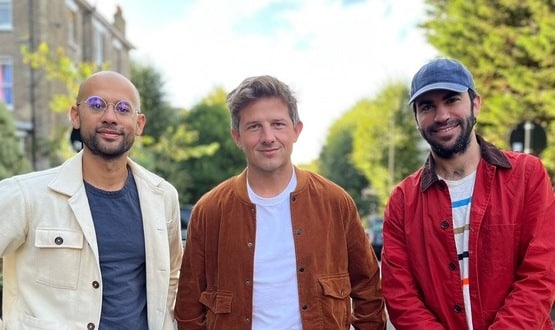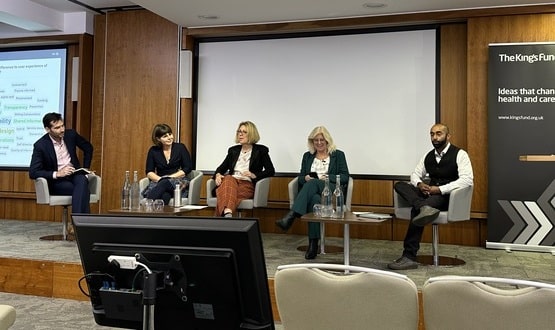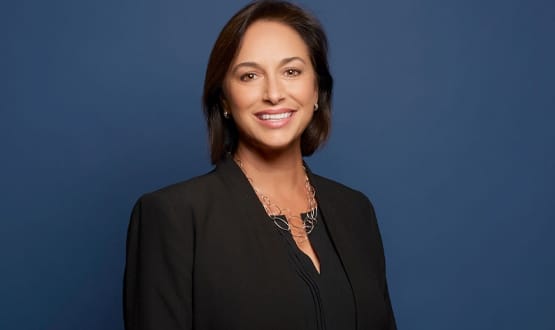Google Health VP talks combing consumer tech with clinical needs
- 17 June 2021

Combining consumer technology and clinical needs will make health information “universally accessible”, the vice president of Google Health has said.
Speaking at the NHS Confed Conference on 16 June, Dr David Feinberg, spoke of the global tech giant’s plans to combine its expertise in consumer technology to “close the gap” between consumers and healthcare professionals.
“What we’re trying to do is take the privilege that we have of people coming to us with health questions on the consumer side… and our ability to look at large data sets and help communities and individuals,” he said.
“As well as using that same technology in healthcare to help doctors and nurses take better care of patients so, ultimately, we want to make it easier for everyone to achieve higher quality health.
“Our mission at Google Health is to organise your health information, in a privacy preserving way, to make it universally accessible and useful to you, your loved ones and those that are caring for you.”
Feinberg addressed several projects Google Health is currently working on, including telehealth provisions for users of Googlefit, which can now measure vital signs like heart rate and respiratory rate using a phone camera. He said more viral signs will be soon be added to the system.
Feinberg also mentioned Google’s recent takeover of Fitbit, which he said will “connect what’s around wellness into health so people’s journeys, wherever they are on improving health or staying healthy, is all connected”.
Google also provides a dermatology app driven by artificial intelligence (AI) to provide people with guidance on common skin conditions.
“We’re really trying to close the gap between when people are coming to use with questions, and if they’re getting better answers, being able to connect them with healthcare providers,” Feinberg added.
Bringing consumer tech into clinical settings
Feinberg went on to say that the tech giant recognised the need to take technology on the consumer side into clinical settings as a “Google-sized problem”.
Google has recently piloted its Care Studio solution with “pretty spectacular” results, Feinberg told the online audience.
Care Studio is a software solution that organises healthcare information in a more structured way for clinicians.
In Feinberg’s words: “A way of organising health information for a doctor or nurse, over multiple electronic health records, for one patient so they can find what they are looking for in a very intuitive way.”
He explained the system works like a Google search bar, making it easy for clinicians to search for what they are looking for without requiring extensive training on the product.
According to Feinberg it has the potential to “solve the interoperability problem” based on Google’s ability to organise vast amounts of data.
“We think that our ability to organise information in the outside world, that same technology can be very helpful in tackling the interoperability problem that we’re having within healthcare,” he added.
“For example, if you’re seeing a new patient and you type in sepsis everything about sepsis would come up about that patient, including what medications they are on, potential vital sign changes, lab results.
“But if in that chart there was no lactate level, what our tool would do is say ‘Hey, in a patient with sepsis like this we would expect to see a lactate level and we haven’t’, so it not only organises what’s there but it hints about what isn’t there.”
But despite the positive trials in hospitals, Feinberg still thinks “we have a long way to go” to make sure it works in regular hospital workflows and can be rolled out further.





1 Comments
Uh-oh! All alarm bells ringing very loudly indeed. Google must be kept out of healthcare at all cost.
Comments are closed.